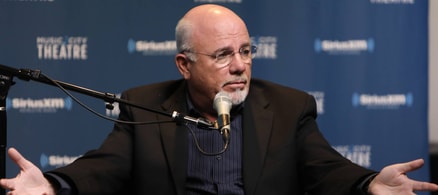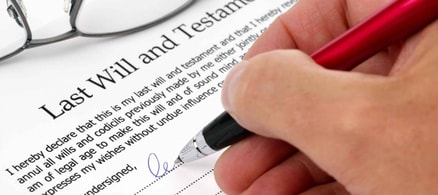What is a f— off fund?
The idea of a f— off fund is to actually use it, says Perhach. Not just wait until there’s an emergency, but any bad situation.
“The thing with the emergency fund, especially when you’re young, is it’s hard to imagine what emergency could happen to you,” she says. “You think, ‘I’m invincible, everything’s great,’ but then when the Billfold piece went so viral, we learned exactly how many people were holding on to those secrets and felt shame.”
Plus, names can change your mindset and lead to action. Perhach says that if she’s avoiding something in her calendar, she changes the name to something that would motivate her to actually do it, hence ‘f— off’ versus ‘emergency’ fund.
Which makes sense. An uninspiring name is just going to make you skip or ignore it on your to-do list but a motivating name might just get you active and involved. ‘F— off’ has a much more visceral effect than ‘emergency.’
As money expert and financial educator, Jessica Moorhouse says, “Perhach’s words deeply resonated with people because we’ve all been there. We’ve all been in a situation at least once in our lives where we’ve wished we could say ‘F— off! I’m out of here!’ Unfortunately, most of us have never been able to go beyond the fantasy,” she says, saying that putting a label to a specific savings goal like this made people realize it could be a reality.
“It’s what inspired me to leave my last toxic workplace, that’s for sure!”
Maximize Your Tax Refund with TurboTax Canada!
Simplify tax season with this user-friendly software. Get step-by-step guidance, maximize deductions, and file with confidence. Trusted by millions, TurboTax Canada ensures accuracy and peace of mind. Start your taxes today and get the refund you deserve
Get the tax refund you deserveWhat’s the difference between a f— off and an emergency fund?
Perhach says if we think of the money we tuck away as only for emergencies, we'll never touch it, even if it would help get us out of a jam. But if we think of it as the funds that allow us to drop out of situations that are bad for us — like toxic workplaces or relationships — we might be more motivated to set more aside and to use it when it can provide us with relief and comfort.
Moorhouse agrees, saying that she sees them for different needs but there are no hard and fast rules about the definition.
“To me, an emergency fund is for more predictable life emergencies like job loss, car breakdown, pet health emergency, personal health emergency, or needing to find a new place to live because your landlord just sold your home. A f— off fund is more about escaping a situation to find freedom or safety.”
How to build up your own fund
The same practice of saving applies to creating a f—- off fund, says Moorhouse. She says first determine how much you need to walk away financially unscathed. Next, open a high-interest savings account, then work backwards to determine how much you can contribute each month or each paycheque.
“Lastly, calculate how many months it will take you to reach your goal. This will not only give you clarity for how much you need but also gives you a countdown clock that will make staying in your situation a bit more bearable until f—-off day.”
Find other options to fall back on
We think that money is the only way to leave a bad situation but Perhach says it doesn’t always have to be financial. If you don’t have money and need to leave a bad situation, you can try to tap into your community.
“Can you talk to a friend and say, ‘hey, if anything ever really goes down, could I stay at your house for a month and I'll clean your house while I'm there?’” she explains.
Grow Your Savings Effortlessly with Moka
Automate your savings with every purchase and watch your money multiply. Moka rounds up your transactions and invests the spare change. Start building wealth effortlessly today. Join thousands of Canadians embracing financial freedom with Moka
Sign up nowFinancial freedom is key
Perhach says having a f— off fund is really about knowing how free you are and that no one has control over you and your income. Like Moorhouse, Perhach recommends sitting down and writing out what [the fund] would buy you.
“How much is a night in a hotel? How much do you need to find a new job? How much time can you buy yourself?” she says.
Other things to consider would be whether you have enough to cover the first and last deposit for a new apartment, or if your fund could buy you time to find a new job.
Finally, there is the joy of having the ability to set your own boundaries with friends, family and coworkers, says Perhach.
“To really take each person in your life and to say, ‘what would have to happen for me to be able to set my boundaries with this person? How much do my boundaries cost to say, ‘I will not be treated like that.’”
Sponsored
Trade Smarter, Today
With CIBC Investor's Edge, kick-start your portfolio with 100 free trades and up to $4,500 cash back.







